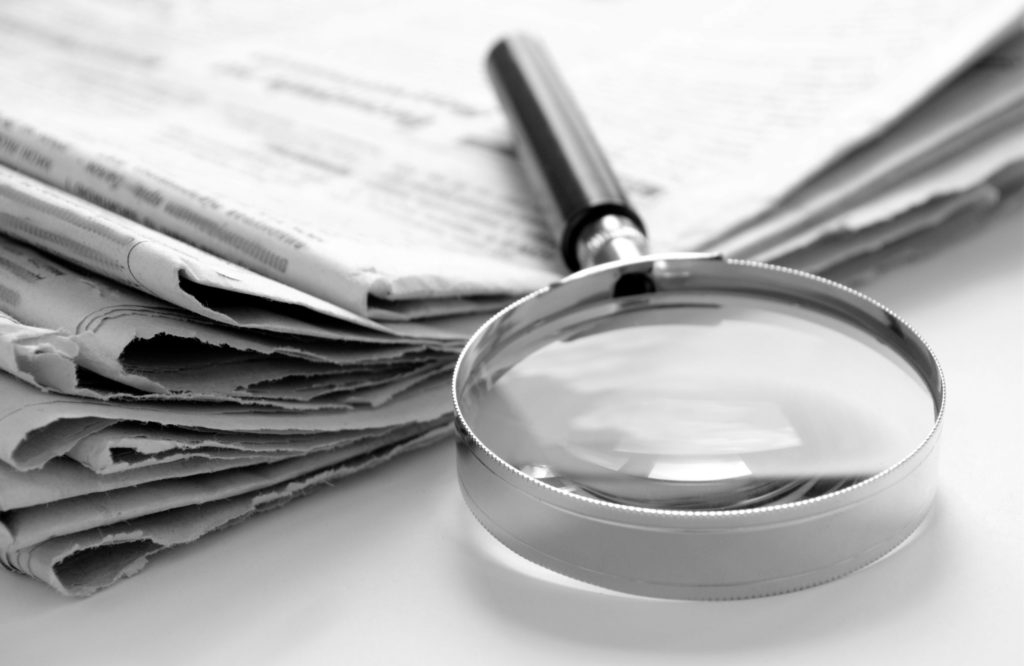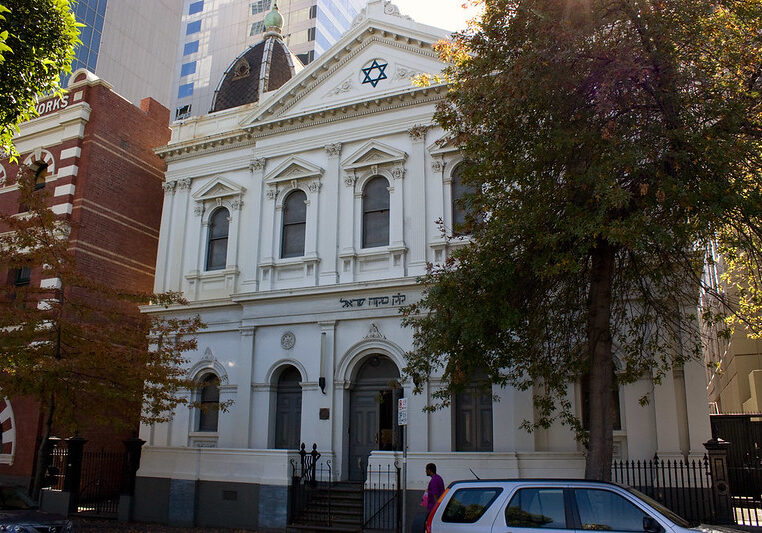Australia/Israel Review
Media Microscope: From Kyiv to Jerusalem
Apr 1, 2022 | Allon Lee

The topics of Jews and Israel featured heavily in the media’s ongoing coverage of Russia’s invasion of Ukraine.
A Russian airstrike which very nearly damaged a memorial to the 33,000 Jews massacred by Nazi soldiers and Ukrainian collaborators at Babyn Yar in 1941 was widely reported. On Radio 3AW (March 3), Federal Treasurer Josh Frydenberg said, “whether you were Jewish or not Jewish, I think you felt the same thing about the insensitivity and brutality of the Russian forces.”
On March 11, the Nine newspapers’ Anthony Galloway reported from Ukraine on how Ukrainian Jews who survived the Nazi invasion in 1941 are coping.
The many reports of Russian President Vladimir Putin’s claim that he needed to invade to “denazify” the country noted Ukrainian President Volodymyr Zelensky’s Jewish background.
Another consistent media trend was the efforts of some commentators to analogise the invasion with the Israeli-Palestinian conflict.
On March 14, Mercury columnist Greg Barns accused the West of double standards for condemning Russian attacks on Ukrainian medical facilities, but ignoring allegedly similar attacks carried out by Israel in Gaza. He suggested it was because of “the West’s view of those who do not share the same skin colour or whose culture is not borne of the European tradition.”
Earlier (March 1), the Mercury ran a letter from Friends of Palestine Tasmania which argued that “sanctions have been applied swiftly on Russia, but we are still waiting for action to bring Israel to account.”
The Mercury published a response by AIJAC’s Jamie Hyams (March 4) noting, “Russia[n] actions…have been unprovoked acts of aggression. Israel captured the West Bank in a defensive war, having been attacked from there by Jordan and immediately offered a land-for-peace deal, which was unequivocally rebuffed by the Arab League. Israel has also made three offers of a state to the Palestinian Authority…all have been rebuffed.”
Guardian Australia reporter Chris McGreal’s long article on March 8 quoted from NGO reports critical of Israel and from activists calling for the world to agree the Russian invasion and the Israeli-Palestinian conflict are alike. Minimal balance was included, notably an extract from a Jerusalem Post editorial that stated, “Sadly, some will only see that the Russians are the far stronger side in this war, that Israel is the far stronger side when it fights Hamas in Gaza, and reflexively just sympathize with the underdog, the weaker side…Weakness, however, does not automatically bestow virtue.”
The trip by Israeli PM Naftali Bennett to Moscow to try to mediate an end to the conflict was reported on March 6 by ABC News Radio and SBS TV “World News”, as well as the websites of Channel 10 and 7.
Ukrainian President Volodymyr Zelensky’s virtual speech to the Israeli Knesset on March 21 had a much larger media presence. ABC TV “Mornings” North America correspondent Barbara Miller focused on Zelensky’s request for Israel’s Iron Dome anti-missile defence system. Miller said, “Israel is in a very difficult position. It wants to keep in with Russia… There is also a substantial Jewish community in Russia… They are delivering aid, but [Zelensky] says that is not enough. He’s called on Israel to deliver military aid.” Miller also incorrectly claimed that Israel is “relatively happy with the role that Russia now plays in the Middle East” – Israel has to deal with this role because it has no choice, but the government has definitely never been happy about it.
A more realistic view of the relationship was apparent in a nuanced report on the ABC website quoting ANU Professor John Blaxland explaining that “Israel is deeply worried that by providing Ukraine with this technology, Russia will then let slip its forces and its proxies and provide incentive for Hezbollah and Syrian anti-Israel groups to attack Israel and make life difficult for Israel.”
Channel 7 and 10 news bulletins ran short reports too, emphasising Zelenksy’s references to the Holocaust in his speech.
In the Daily Telegraph (March 8), AIJAC’s Colin Rubenstein took a holistic view of events, warning that the Biden Administration needs to learn the appropriate lessons from Russia’s invasion and apply them to the “Iran nuclear file”.
Dr Rubenstein said, “Russia’s actions show that the idea that concessions and understanding can moderate the behaviour of dictators and expansionist regimes is dangerously wrong. This is a lesson the world in general – and the Biden Administration in particular – must consider before supercharging Iran’s aggressive, rogue regime.”
Tags: Australia, Israel, Media/ Academia, Ukraine






